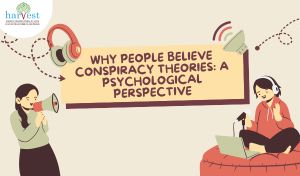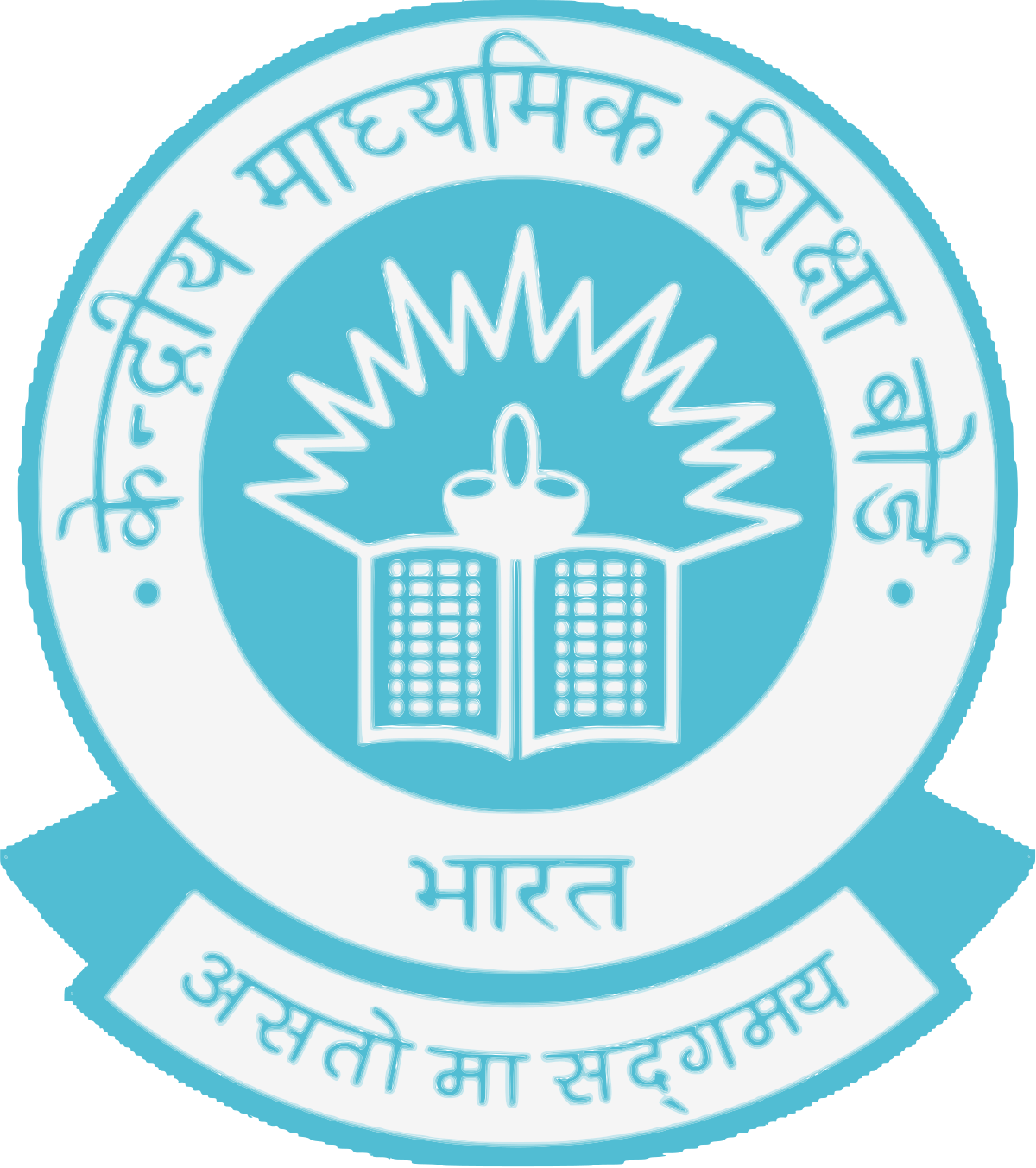Why People Believe Conspiracy Theories: A Psychological Perspective
In a world where information spreads in seconds and misinformation spreads even faster, the allure of conspiracy theories has never been stronger. From moon landing denials to global mind-control narratives, conspiracy theories captivate millions. But why do people believe them, even when evidence says otherwise?
At Harvest International School, one of the best schools in Sarjapur Road Bangalore, we strive to foster critical thinking and psychological awareness in our students. Understanding the roots of conspiracy theories not only helps in developing media literacy but also cultivates empathy and emotional intelligence—skills we consider essential for 21st-century learners.
This blog explores the psychological reasons behind the widespread belief in conspiracy theories and how institutions like ours, recognized as one of the best schools in Bangalore India, can empower students to distinguish fact from fiction.
The Appeal of Conspiracy Theories
To outsiders, conspiracy theories may seem irrational or outlandish. However, to those who believe in them, they offer a way to make sense of a complex and often chaotic world. Psychologically, conspiracy theories serve several functions:
1. A Need for Understanding and Certainty
Humans are naturally curious and seek explanations for significant events, especially those that provoke fear or uncertainty. Conspiracy theories offer seemingly coherent narratives where randomness is replaced with purpose. When a person faces information overload or unpredictable circumstances, they may cling to these narratives for psychological comfort.
At Harvest International, among the CBSE schools in Bangalore Sarjapur Road, we encourage inquiry-based learning that helps students evaluate evidence and handle ambiguity—skills that reduce the cognitive need for conspiracy-based explanations.
2. A Desire for Control and Security
People tend to believe in conspiracy theories more when they feel powerless or anxious. Whether during political unrest or a global pandemic, theories like “the virus is man-made” or “the government is hiding the cure” spike in popularity. These theories provide a false sense of understanding and control over an uncontrollable situation.
As one of the top schools in Bangalore, Harvest International School integrates psychological literacy into its curriculum to help students understand emotional responses like anxiety and fear—and how these can influence our thinking.
Psychological Traits That Make People Susceptible
1. Cognitive Biases
Our brains take mental shortcuts—called cognitive biases—to make decisions quickly. Some of these biases make people more prone to conspiracy thinking:
- Confirmation Bias: The tendency to search for and believe information that confirms one’s pre-existing beliefs.
- Proportionality Bias: The belief that big events must have big causes, making random or simple explanations unsatisfying.
- Intentionality Bias: Assuming that events happen because someone intended them to.
At one of the best schools in Bangalore India, we train students to recognize these biases through debate, research, and group discussions—thereby fostering metacognition and skepticism in a healthy way.
2. Low Trust in Institutions
Research shows that individuals who harbor distrust toward governments, media, or corporations are more likely to believe conspiracy theories. This skepticism often stems from a history of misinformation, poor governance, or social exclusion.
At Harvest International, we aim to build civic knowledge and social responsibility. Through transparent classroom practices and participatory learning, we model the values of trust and accountability.
Social and Emotional Factors
1. A Sense of Belonging
Believing in conspiracy theories often connects individuals to like-minded communities. These beliefs provide a shared identity and a sense of purpose, especially for those who feel marginalized.
At Harvest International School, we focus on inclusivity and emotional intelligence. Through peer collaboration and social-emotional learning (SEL) modules, students experience the emotional fulfillment that comes from healthy, real-world connections.
2. Self-Esteem Boost
Ironically, believing in a conspiracy can make people feel special or superior. “I know the truth that others are too blind to see” gives a psychological boost, especially for those struggling with self-worth.
At one of the top schools in Bangalore, our mentorship programs and individual attention ensure students feel recognized and empowered—mitigating the need to seek validation through alternative belief systems.
The Role of the Internet
The digital age has revolutionized the spread of conspiracy theories. With algorithms amplifying sensational content, misinformation often spreads faster than verified facts.
At Harvest International, considered one of the best schools in Bangalore India, our digital literacy programs help students critically analyze online content. We teach them how to differentiate between reliable sources and unverified claims, which is an essential life skill in today’s information-rich environment.
How Schools Can Address Conspiracy Thinking
Schools play a vital role in equipping students to resist misinformation and conspiracy theories. Here’s how we tackle it:
1. Promoting Critical Thinking
As one of the best schools in Sarjapur Road Bangalore, we integrate critical thinking across subjects—from evaluating historical sources in social studies to questioning hypotheses in science. Students learn to ask: What’s the evidence? Who benefits from this belief? Is there an alternative explanation?
2. Encouraging Dialogue
Instead of ridiculing or dismissing students who express alternative views, our approach is to foster respectful dialogue. We train educators to guide discussions in a way that challenges misconceptions while validating students’ emotions.
This approach has made us a favorite among parents seeking the best schools in Bangalore India that prioritize both intellectual and emotional development.
3. Media Literacy Education
In an era of fake news and deepfakes, media literacy is indispensable. Students at our school learn to:
- Evaluate the credibility of sources
- Understand the influence of algorithms
- Recognize persuasive techniques in media
Real-Life Applications
1. Student Debates on Misinformation
Our students regularly engage in debates and simulations where they evaluate conflicting information. These activities help them experience firsthand the consequences of flawed reasoning or poor evidence evaluation.
2. Guest Lectures and Workshops
We invite psychologists, journalists, and digital safety experts to speak on topics such as mass persuasion, the psychology of belief, and media manipulation. This exposure enriches classroom learning and broadens student perspectives.
These initiatives contribute to our standing as one of the top schools in Bangalore dedicated to real-world education.
Building Immunity to Conspiracy Thinking
Rather than simply telling students what to believe, our aim is to equip them with mental tools to evaluate how they believe. These include:
- Humility: Knowing that no one has all the answers
- Curiosity: The drive to investigate further
- Empathy: Understanding why someone might believe in a conspiracy
- Resilience: The ability to accept uncertainty and cope with complexity
At one of the best schools in Sarjapur Road Bangalore, we believe that cultivating these virtues is just as important as teaching facts and figures.
The Role of Parents
Parental influence is pivotal in shaping how children perceive the world. We encourage parents to:
- Foster open, judgment-free conversations at home
- Model critical consumption of news and media
- Discuss how to manage fear and uncertainty
As a community-focused institution, Harvest International—one of the best schools in Bangalore India—frequently hosts parent-teacher workshops on psychological well-being and media literacy.
Looking Ahead: A Culture of Thoughtfulness
As belief systems become more polarized, and as artificial intelligence blurs the line between truth and fiction, nurturing thoughtful, self-aware individuals has become more urgent than ever.
At Harvest International School, ranked among the top schools in Bangalore, we remain committed to:
- Encouraging balanced skepticism without fostering cynicism
- Promoting emotional awareness alongside intellectual curiosity
- Creating a school environment where truth is pursued, not imposed
Conclusion
Conspiracy theories are more than just quirky beliefs—they are windows into how people process fear, uncertainty, and social belonging. By understanding the psychology behind these beliefs, we can foster empathy and resilience in the next generation.
As one of the leading CBSE schools in Bangalore Sarjapur Road, Harvest International School equips students with the tools they need to think critically, feel deeply, and act responsibly. In doing so, we help them become not only academically successful but also psychologically grounded global citizens.
In a world awash with misinformation, truth isn’t just a concept—it’s a practice. And at Harvest International, one of the best schools in Sarjapur Road Bangalore, we practice it every day.





